Conference Participants
Oladayo Afolabi
oladayo.afolabi@kcl.ac.uk
Kings College London
Palliative Care
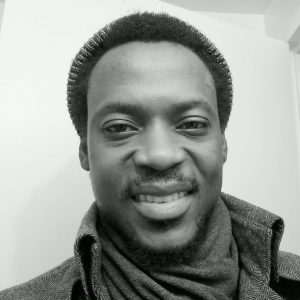
Oladayo Afolabi graduated from the Bachelor of Nursing Science degree at Ladoke Akintola University of Technology in Nigeria. His experience as a Registered Nurse from Nigeria highlighted the need for ongoing structured support for patients with long term conditions in a health system tuned towards communicable conditions and acute care. Fueled with his passion for supporting patients with long term conditions and their families. He won the Muritala Muhammed Postgraduate Scholarship to study MSc at London Metropolitan University in 2012. His research demonstrated the need for structured social support even within closely knitted family structures where such support is presumed abundant. In 2018, he was awarded King’s International Postgraduate Research Scholarship to study for his PhD at the Cicely Saunders Institute of Palliative care, policy and rehabilitation, Florence Nightingale Faculty of Nursing, Midwifery and Palliative care, King’s College London, London, UK. His research involves developing and testing the acceptability and feasibility of an integrated palliative care intervention for patients with serious illnesses at the primary healthcare level in Nigeria. This has the potential to scale the delivery and improve access to palliative care in difficult to reach populations while contributing to the achievement of the Universal Health Coverage (UHC) goal in Nigeria.
Nina Altmaier
nina.altmaier@uni-tuebingen.de
Eberhard Karls Universität Tübingen
Media Studies
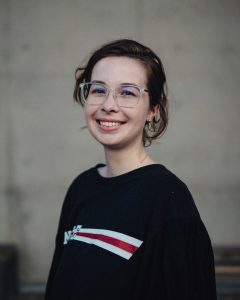
Nina Altmaier is a research assistant at the Institute for Media Studies at the University of Tübingen, doing research on practices of digital disconnection and media resistance. In her PhD, she is focused on self-directed digital language learning strategies. In 2018 she graduated with a master’s degree in media studies from the University of Trier, where she studied from 2011 to 2018. In her master’s thesis “Screening the Invisible – Climate Change in Documentary Film“, she analyzed the characteristics and development of documentaries about climate change.
Michael Baird
mshbaird@email.unc.edu
University of North Carolina at Chapel Hill
Art History
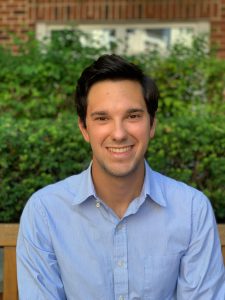
Michael Baird is a doctoral student in Art History. He is interested in the Western reception of African material culture and how the discourse of fine art was utilized in the fashioning of national identity at the end of the colonial era. His current work centers on how art education formed an integral component of the British colonial apparatus in the East Africa Protectorate and how this colonial instruction in making continues to influence understandings of art within the contemporary nation-state of Uganda and perceptions of Ugandan art abroad. In 2019, Michael received his bachelor’s degree in Art History from Centre College in Danville, Kentucky. Following his graduation, he worked as curatorial intern and later curatorial and education assistant at the Smithsonian National Museum of African Art in Washington, D.C. While there he coordinated an initiative to re-evaluate the ways the museum characterizes and educates the public on African-inspired religions.
Katharina Beyer
beyerkatharina@web.de
Kings College London
Oncology
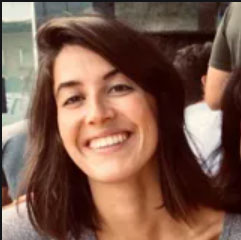
Katharina Beyer is a Research Associate for the Translational Oncology and Urology Research (TOUR) team at King’s College London. She is currently working as the research associate for the Prostate Cancer DIagnosis and Treatment Enhancement through the Power of Big Data in Europe, where she works on development and standardisation of a core outcome set of clinically relevant standardised prostate cancer-related outcomes and prognostic and diagnostic factors. In addition, she is pursuing her part time PhD focusing on patient treatment choices in kidney cancer. This research project aims to determine the most influential facilitators in kidney cancer treatment selection by comparing three different clinical units and models of care in the UK. She received her BSc in European Public Health from Maastricht University in the Netherlands, followed by her MSc, a double degree in Public Policy and Human Development from the United Nations University Institute for Economic and Social Research on Innovation and Technology and Maastricht University. She wrote her MSc dissertation as part of a research project of the Wellcome Trust Expert Advisory Group on Data Access.
Adrienne Bonar
adrienne.bonar@live.unc.edu
University of North Carolina at Chapel Hill
Psychology
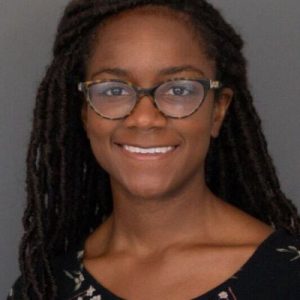
Adrienne Bonar is a second year Ph.D. student in the Department of Psychology and Neuroscience at the University of North Carolina. She studies how variation in biological processes (e.g., brain function, autonomic physiology, inflammation) create differences in the experience of emotion. She is also interested in how sociocultural factors such as structural inequities and beliefs about the body alter people’s emotional experiences across the lifespan. Adrienne is supported by a Royster Society Fellowship from UNC and a Graduate Research Fellowship from the National Science Foundation.
Burcu Bozkurt
bozkurt@live.unc.edu
University of North Carolina at Chapel Hill
Health Policy and Management
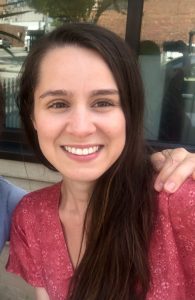
Burcu Bozkurt (@BuBozz) is a rising fifth-year doctoral candidate in the Department of Health Policy and Management at the UNC Gillings School of Global Public Health. She is a Royster and PD Soros Fellow. Burcu’s dissertation uses mixed methods to investigate racial disparities in postpartum care in the United States. She has pursued interdisciplinary training while at UNC – taking classes across multiple departments and schools. She is interested in health equity, healthcare organizations and implementation science to improve healthcare access and quality. Much of her work has focused specifically on how policies can be better implemented for reproductive-age women, youth and families. This is her second year as part of the Royster Global organizing committee. In her spare time, Burcu loves playing tag with her husband and dog, Loop, making pasta from scratch, reading in her hammock, and watching Turkish soap operas.
Vincent Chabany-Douarre
vincent.chabany-douarre@kcl.ac.uk
Kings College London
History
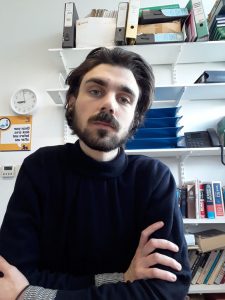
Vincent Chabany-Douarre is a doctoral candidate at King’s College London, in the history department, working on a history of development and race in suburban Los Angeles. His research is supported by the Arts and Humanities Research Council. His scholarly work is forthcoming in the edited collection Home: Key Ideas in Geography (Routledge, 2021), and in the Journal of American Studies. In terms of public engagement, he has written for BBC History Magazine, was a recipient of an AHRC TV PhD fellowship as part of his work in British television and was a guest on writer Jessa Crispin’s podcast ‘Public Intellectual’. Prior to his PhD, he was a student at La Sorbonne and the University of Oxford, and taught at Reed College, Portland.
Jinhai Deng
jinhai.deng@kcl.ac.uk
Kings College London
Cancer
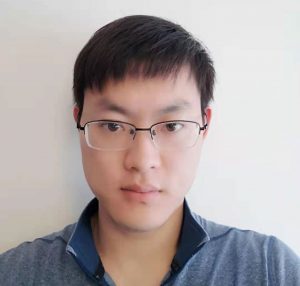
I am a PhD student in Cancer Immunology at Kings College London. My research interests are to study the tumor-immune crosstalk, which help to screen the immunogenic effects of anti-cancer drugs. Part of the project to establish 3D co-culture system, to a large extent, for better personalized treatment. I am involved in several pharmaceutical companies collaborating projects for preclinical investigations. After graduating from Peking University with a master degree in Immunology, I found the important role of immune system in regulating or even rearranging local microenvironment in human body.
Samantha Eiffert
eiffert@live.unc.edu
University of North Carolina at Chapel Hill
Pharmaceutical Sciences
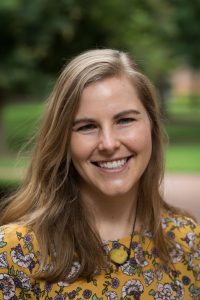
Sam received her bachelor’s degree in philosophy from Creighton University in 2013 and her MPH in environmental health from the Rollins School of Public Health at Emory University in 2015. She has prior work experience in analytical chemistry, environmental epidemiology, qualitative research, and most recently, pharmacoepidemiology and quality improvement at the University of Kansas Medical Center. She is a rising third year student in the Division of Pharmaceutical Outcomes and Policy, and she is primarily interested in epidemiology methods and leveraging secondary data sources, such as electronic medical records and insurance claims, to study cancer outcomes. In her spare time, Sam enjoys craft beer, hiking, and DIY projects.
Sarah Godoy
sgodoy@email.unc.edu
University of North Carolina at Chapel Hill
Social Work
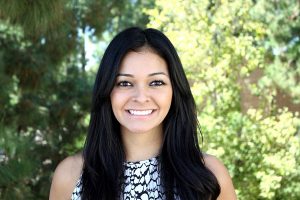
Sarah Godoy is a doctoral student, graduate research assistant, and Royster Fellow at the University of North Carolina at Chapel Hill (UNC-CH) School of Social Work. Her area of research focuses on youth and young adults impacted by commercial sexual exploitation in the juvenile justice and child welfare systems and their intersection with healthcare and social services as well as technology. Sarah has been a Research Associate in UCLA’s David Geffen’s School of Medicine since 2017. She is currently the Co-Investigator of a pilot study focused on reproductive and sexual health among youth in foster care with histories of commercial sexual exploitation. She was Lecturer in the Department of Social Welfare at UCLA between 2018 and 2020. Sarah conducted preliminary research in the red-light district of Tijuana, Mexico and practiced social work with women and children in the brothels of Old Delhi, India’s red-light district. She has published peer-reviewed articles, research reports, and magazine articles, including 5 articles in Forbes magazine, about commercial sexual exploitation. In 2017, Sarah was named number 20 of the top 100 Human Trafficking and Slavery Influence Leaders. Sarah earned her master’s degree in Social Welfare at UCLA.
Nick Haswell
nicholas.haswell@tuni.fi
University of Tampere
Education
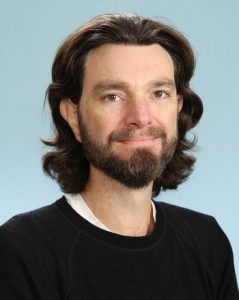
Nick Haswell (Master’s in Teacher Education) is a researcher at Tampere University. His main research interests lie in the intersections between environmental and social crises. He is working on several projects concerning the education and wellbeing of children and adults with refugee and asylum-seeking backgrounds. As an experienced artist and trained art teacher, he is interested in the ways that expressive arts and story-making can be used in research contexts. He is currently pursuing doctoral studies in Tampere University with the aim to investigate the nexus between wellbeing and environmental relations in the lives of young refugees in Finland, Norway and Scotland. In addition to research activities, Nick co-runs a creative working group, We Who Smile, which organises art projects for children in reception centres around the Finland.
Hunter Hughes
hphughes@email.unc.edu
University of North Carolina at Chapel Hill
Geological Sciences
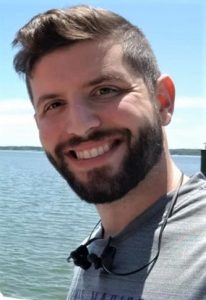
Hunter is interested in what factors impact coral skeletal geochemistry and how these climate proxies can best be used to reconstruct tropical ocean conditions. Prior to becoming a Tarheel, he completed his master’s degree measuring how small changes in local seawater chemistry could have large implications for coral-based temperature reconstructions in the Western Hemispheric Warm Pool. Recently accepted as a member of the ASLO LOREX 2020 Cohort, Hunter is passionate about the global implications of his research and how communication can connect the scientific community with a variety of stakeholders.
Rana Ibrahim
rana.ibrahem@kcl.ac.uk
Kings College London
War Studies
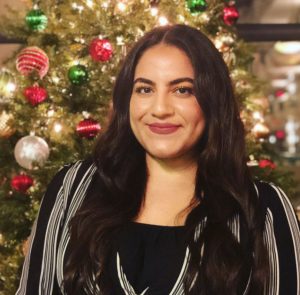
Rana Ibrahem is a PhD Candidate in the Department of War Studies at King’s College London and a member of the War Crimes Research Group. Rana joined King’s from Princeton’s Liechtenstein Institute on Self-Determination (LISD), where her portfolio included the Organization for Security and Co-operation in Europe (OSCE) and the Liechtenstein Colloquium on European and International Affairs (LCM), an international forum for multi-track diplomacy and conflict resolution. At Princeton, Rana managed an Academic Advisory Program for the 2017 Austrian Presidency of the OSCE in close collaboration with the chairmanship team in Vienna. As part of her work in the Middle East and North Africa, Rana worked as a policy fellow with Endeavor, in Amman, Jordan, where she analyzed the efficacy of economic and social policies affecting Jordan’s growing technology sector. Rana holds a BA in the School of Public and International Affairs at Princeton University. Rana speaks Arabic, Spanish, and German.
Hannah Jones
hannah.1.jones@kcl.ac.uk
Kings College London
Cell Biology
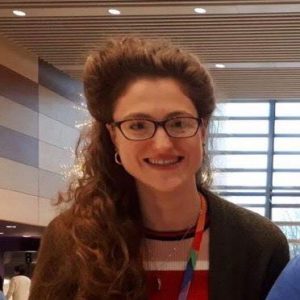
Hannah is a final year PhD student at King’s College London. She works in the lab of Jeremy Carlton, and is currently based at The Francis Crick Institute. Her research uses a number of different microscopy approaches to study how organelles (the small machineries inside each cell) undergo dynamic changes during the process of cell division. Alongside her PhD studies, she has also been involved in a number of education and engagement programmes for high school students, as well as public events. Hannah has an underlying interest in science policy, and is looking to move into this field after her PhD.
Stephanie Kaczynski
stephaniekaczynski@unc.edu
University of North Carolina at Chapel Hill
Communication
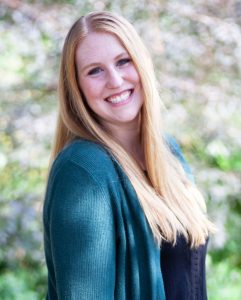
Stephanie Kaczynski is a Royster Fellow and a Ph.D. student in the Department of Communication at the University of North Carolina at Chapel Hill. She is also pursuing UNC’s Graduate Certificate in Participatory Research. Stephanie teaches and researches in the areas of performance and cultural studies, with an underlying focus on transnational feminist ethic. In particular, her research examines the biopolitical and colonial relationship between mobility and the nation-state and alternate conceptualizations of community beyond formal structures. You can read her published work in Women & Language and Asian Diasporic Visual Cultures and the Americas.
Lars Klemeyer
lars.klemeyer@uni-hamburg.de
University of Hamburg
Nanoscience
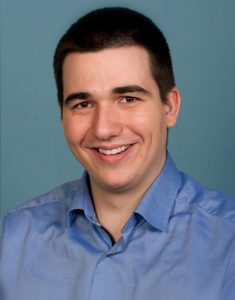
Lars is currently enrolled in a nanoscience Ph.D. program at the University of Hamburg in the lab of Prof. Dorota Koziej. He actively participates at a ‘buddy-program’ for international students who joined the University of Hamburg for a Ph.D. program and supports them in their daily life to ease their arrival and settling in Hamburg. He gained valuable experience with intercultural communication skills during his six-month internship at Northwestern University where he successfully integrated himself to the international group of Prof. Jiaxing Huang. Lars believes that it is of great importance to break down intercultural barriers which have been increased as a result of the pandemic.
Victoria Kratel
victoria.kratel@uni-tuebingen.de
Eberhard Karls Universität Tübingen
Media Studies
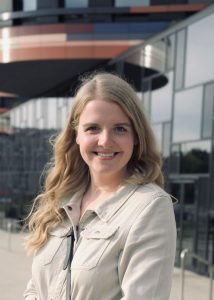
Victoria Kratel is a PhD student at the Institute of Media Research at the University of Tübingen in Germany. Her research is on practices of disconnection, which are related to popular terms like digital detox or unplugging. Therefore, she is interested on why people reduce their media consumption, what tactics are helping them to abstain and how the process is influenced by socioeconomic characteristics. In her thesis she is focusing on the role of time and gender, that are closely linked to the disconnection debate. She is implementing an intersectional-feminist perspective and is generally interested in topics related to diversity.
Chris Lane
chris_lane@med.unc.edu
University of North Carolina at Chapel Hill
Human Movement Science
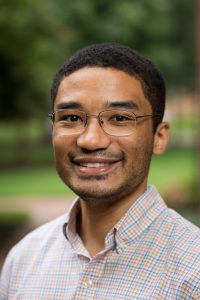
Chris Lane was born and raised in Fayetteville, North Carolina and completed his undergraduate studies at Wake Forest University in 2016. He will now be a double Tar Heel, graduating from the UNC Doctor of Physical Therapy program in 2019 and now studying in the PhD program in Human Movement Science! Chris aims to engage in a combination of research, teaching, and clinical care in the future. His primary research interest is in racial/ethnic disparities in clinical and health services outcomes associated with individuals with knee osteoarthritis. Chris is also interested in researching and implementing methods to improve diversity, equity, and inclusion in the physical therapy profession.
Annie Lincoln
annie.lincoln@kcl.ac.uk
Kings College London
Epidemiology
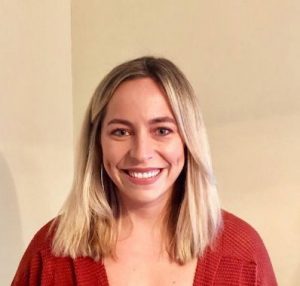
Annie Lincoln is a 2nd year PhD student based in London at King’s College London (KCL) where she is studying cancer epidemiology. Her research is focused on colorectal cancer surveillance for individuals with Lynch Syndrome. Prior to living in London and studying at KCL, Annie had spent most of her early career working in clinical cancer research at a number of academic medical centres within the U.S., most notably at Memorial Sloan Kettering Cancer Centre in New York City, and the Harvard Medical School teaching hospital, Beth Israel Deaconess Medical Centre in Boston. Annie has her Masters of Science (M.S.) in Neuroscience from Brandeis University and originally hails from Raleigh, North Carolina.
Sean McCann
Mccannsm@unc.edu
University of North Carolina at Chapel Hill
Pharmaceutical Sciences
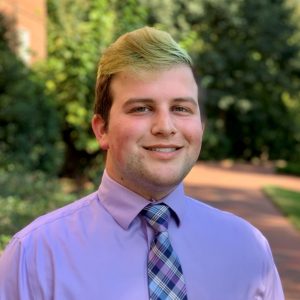
I am finishing my first year as a graduate student in Pharmaceutical Sciences in the Department of Pharmacotherapy and Experimental Therapeutics. My research is focused on appropriate dosing of antibiotics to prevent drug-resistance in bacteria. I live in Chapel Hill with my wife, our cat, and our two dogs. In my free time, I like to cook and I am currently learning German. At this conference, I really want to hear how working from home has affected people during the pandemic.
Joshua Miller
josh.miller@unc.edu
University of North Carolina at Chapel Hill
Nutrition
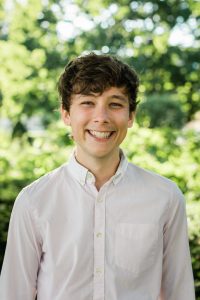
Josh is a doctoral student in the Department of Nutrition at UNC Chapel Hill. He uses a biocultural, mixed-methods approach to understand how social and environmental factors influence maternal and child health. His research primarily focuses on how the lived experience of resource insecurity, namely food and water insecurity, during the first 1000 days (the year prior to delivery and two years postpartum) impacts subsequent physical, psychosocial, and nutritional well-being.
Kierra Peak
knpeak@live.unc.edu
University of North Carolina at Chapel Hill
Occupational Science
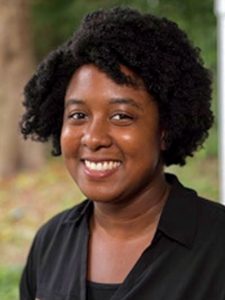
Kierra Peak is a doctoral student in the Department of Occupational Science and Occupational Therapy. Her interest in understanding how people engage in everyday activities led her to complete an undergraduate degree in Anthropology and pursue doctoral research to gain a better perspective of youth activism and the implications such work has on adolescent health and well-being. As with many students’ research, life in a pandemic has impacted how people engage in activism during a pivotal time in politics in the US. To protect her own mental health to overcome periods of languishing during the pandemic, she’s reintroduced herself to her love of self-help books and sci-fi novels.
Chayanika Saxena
chayanika.saxena@u.nus.edu
National University of Singapore
Geography
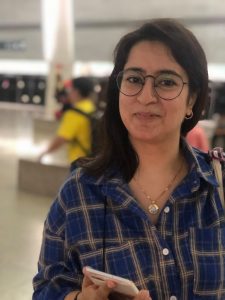
Chayanika Saxena is a President’ Graduate Fellow and PhD candidate at the Department of Geography, National University of Singapore. She holds a Bachelor’s (Honours) Degree in Political Science from the University of Delhi (New Delhi) and double Master’s in International Relations from South Asian University (New Delhi) and S. Rajaratnam School of International Studies (Singapore). Prior to her current engagement with the Afghan residents in India, she has worked for over seven years on the geopolitical and domestic dynamics concerning Afghanistan. Her works, peer reviewed and opinion pieces, have appeared regularly in Indian and international journals, think-tanks and news outlets. She has also presented extensively on issues related to Afghanistan, refugee and migration crisis at different national and international forums. She is fluent in Hindi, English and Urdu; has working knowledge of Dari-Persian and beginner’s linguistic proficiency in Arabic.
Jamshaid Shahir
jashahir@live.unc.edu
University of North Carolina at Chapel Hill
Bioinformatics and Computational Biology
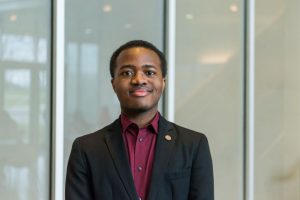
Jamshaid is a 3rd year PhD candidate in Bioinformatics and Computational Biology at UNC in the lab of Jeremy Purvis. His research investigates the role of the cell cycle in human embryonic stem cell differentiation. He graduated from the University of Maryland Baltimore County in 2018 with degrees in mathematics and statistics. There, he was a member of the Meyerhoff Scholars Program, a nationally recognized program that seeks increase the number of underrepresented minorities who go on to earn PhDs in STEM, of which Dr. Kizzmekia Corbett is also an alum. Jamshaid is a proponent of scientific literacy among the public, and writes for the student-run blog, The Pipettepen, publishing articles accessible to the public on subjects ranging from cat coat genetics to machine learning and music. Outside of research, Jamshaid enjoys playing piano and spending time with his two cats.
Vaia Sigounas
sigounv@live.unc.edu
University of North Carolina at Chapel Hill
Anthropology
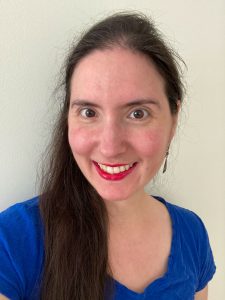
Vaia (Yioula) Sigounas is a physician and medical anthropologist at the University of North Carolina in Chapel Hill. She graduated magna cum laude from Harvard University with a degree in literature before attending medical school at the University of North Carolina at Chapel Hill. After training as a surgeon, Yioula returned to UNC-Chapel Hill to earn her doctorate in medical anthropology. Her research focuses on how people who have undergone trauma, such as amputation, use medical technologies in order to reconstruct their identities and reconfigure their social relationships. Within medical anthropology, her work is situated at the intersection of Disability Studies and Science and Technology Studies of and from Africa. This is her third pandemic.
Heba Sigurðardóttir
heba.sigurdardottir@tuni.fi
University of Tampere
Social Sciences
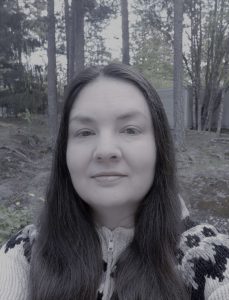
My name is Heba Sigurðardóttir and I am a dissertation researcher at the University of Tampere, Finland. I am a graduate from the same university with an M.A degree in Global and Transnational studies. As a part of my dissertation project, I worked in the Tampere Centre of Knowledge, Science, Technology, and Innovation Studies until the end of last year. My research interests are mainly focused on global social change, activism, and the form of mobilization on the Internet. My current project is a study of #MeToo as a transnational social movement and on how it appeared in online newspapers in different national contexts. I am also a participant in the Tampere Research Group for Cultural and Political Sociology (TCuPS) where we focus on the relationship between power and politics from a cultural, constructionist, and neo-institutionalist perspective.
Vanshika Singh
Vanshika.singh@u.nus.edu
National University of Singapore
Geography
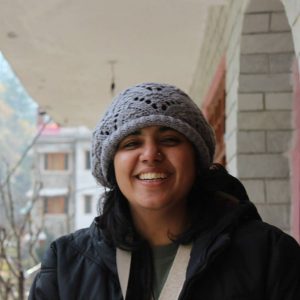
Vanshika is a Ph.D. student at the Department of Geography, National University of Singapore. For her research, she wishes to explore how the current understanding of antimicrobial resistance and risk could change if the environment is implicated as a key pathway of infectiousness. In the context of the emergence of multiple-drug resistant superbugs, she intends to study the impact of pharmaceutical waste flowing into surface water bodies and its effects on local dwelling. Before joining NUS, Vanshika worked at Hyderabad Urban Lab, an interdisciplinary organization formed on the tenets of the Right to the City. Her research here on the service delivery of water and sanitation in informal settlements was part of the multi-city and multi-institutional Tacit Knowledge Urban Research Network (TURN). In addition to developing academic competencies, Vanshika believes in leveraging mediums such as podcasts, storytelling, and exhibition curation to practice public scholarship and engagement.
Kelsey Thompson
kelsey_thompson@med.unc.edu
University of North Carolina at Chapel Hill
Speech and Hearing Sciences
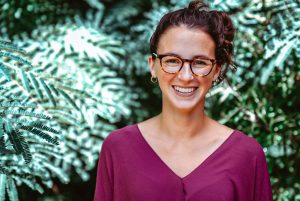
Kelsey is a doctoral student in Speech and Hearing Sciences at UNC Chapel Hill. Kelsey earned her bachelor’s and master’s degrees from Northeastern University in speech-language pathology and has six years of clinical experience as a pediatric speech language pathologist. Her research centers around pediatric feeding disorder in preterm infants at the transition to solid foods. She is particularly interested in how stress impacts oral motor skill development and family relationships. Kelsey integrates physiologic monitoring as an objective tool for stress measurement with clinically relevant tools with the goal of improving prevention, assessment and treatment practices for these infants.
Caitlin Williams
caitlin.williams@unc.edu
University of North Carolina at Chapel Hill
Maternal and Child Health
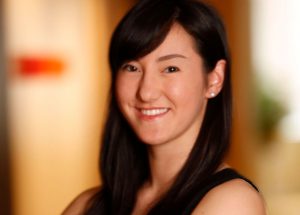
Caitlin R. Williams, MSPH wants to understand how people access the sexual and reproductive health services they want and need, particularly in under-served and marginalized communities. Her work focuses on how laws and policies structure the contexts in which people seek/receive care, and how changes to the system affect the implementation of evidence-based practices.
Emel Yorganci
emel.yorganci@kcl.ac.uk
Kings College London
Palliative Care
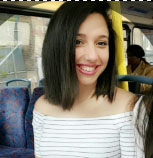
I graduated from Royal Holloway, University of London in 2015 with a BSc Psychology degree; then completed MSc in Psychiatric Research in 2016 at King’s College London. I joined the Cicely Saunders Institute in January 2017 as a Research Assistant Evans working on the ImproveCare trial; a multi-centre feasibility cluster randomised control trial of the AMBER Care Bundle. I also conducted a systematic review focusing on best ways to include adults across the trajectory of mental capacity in end-of-life care research as part of the MORECare Capacity project. I am an ESRC PhD Training Fellow, completing my PhD on identifying patterns in healthcare use and inequalities towards the end of life for individuals with dementia. I also work for the EMBED-Care, which aims to empower better end-of-life dementia care. I am part of the Diversity & Inclusion and Mind & Body executive groups. My research interests include dementia, end-of-life, routine data, transitions, hospital admissions, and social inequalities.

